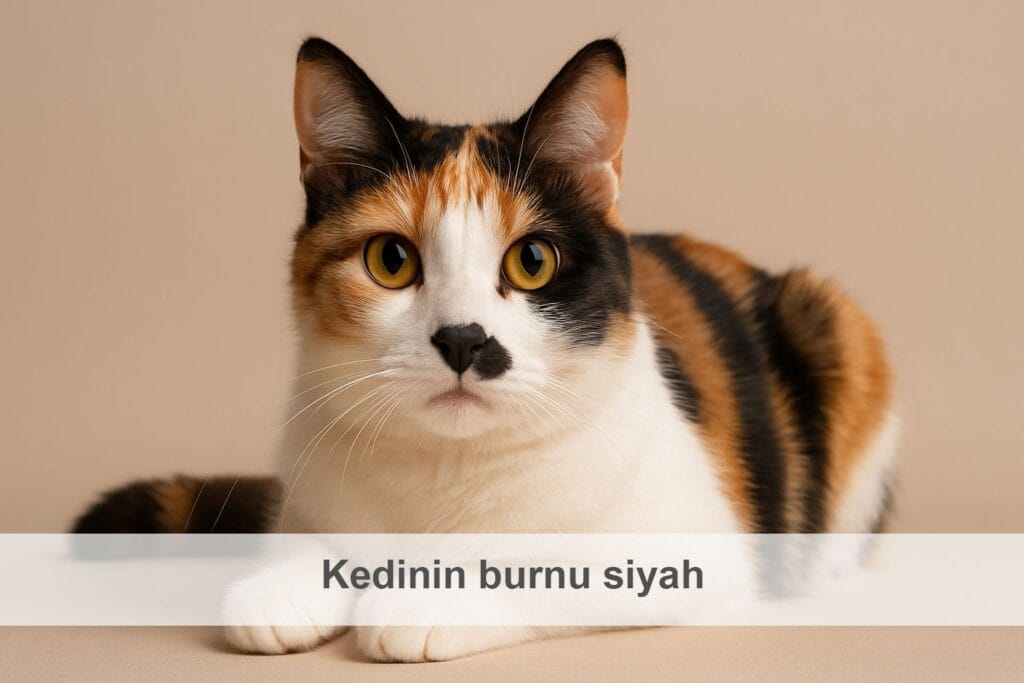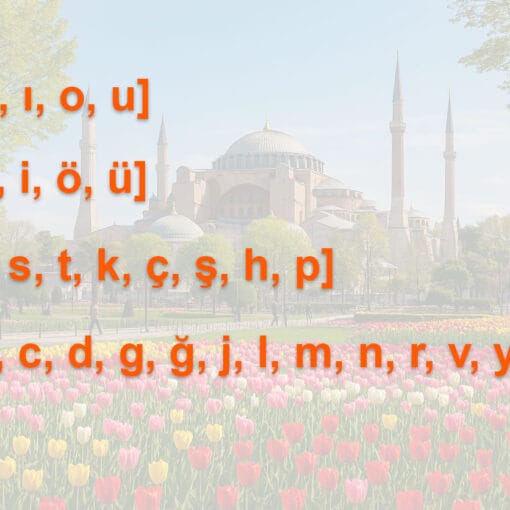İyelik Ekleri (Possessive Suffixes)
Possessive suffixes in Turkish indicate to whom an object belongs, who its owner is. They are added to nouns and change their form depending on the personal pronoun.
How they are formed
- Noun stem + possessive suffix
- The suffixes change according to the vowel harmony rule: -im / -ım / -um / -üm.
- In the plural (-lar/-ler), the plural ending is added first, followed by the possessive suffix.
| baba (father) | anahtar (key) | anne (mother) | ev (house) | manto (coat) | kol (arm) | ütü (iron) | köy (village) | |
| Ben-im (my) | baba-m (my father) | anahtar-ım (my key) | anne-m (my mother) | ev-im (my house) | manto-m (my coat) | kol-um (my arm) | ütü-m (my iron) | köy-üm (my village) |
| Sen-in (your) | baba-n (your father) | anahtar-ın (your key) | anne-n (your mother) | ev-in (your house) | manto-n (your coat) | kol-un (your arm) | ütü-n (your iron) | köy-ün (your village) |
| O-nun (his/her) | baba-sı (his/her father) | anahtar-ı (his/her key) | anne-si (his/her mother) | ev-i (his/her house) | manto-su (his/her coat) | kol-u (his/her arm) | ütü-sü (his/her iron) | köy-ü (his/her village) |
| Biz-im (our) | baba-mız (our father) | anahtar-ımız (our key) | anne-miz (our mother) | ev-imiz (our house) | manto-muz (our coat) | kol-umuz (our arm) | ütü-müz (our iron) | köy-ümüz (our village) |
| Siz-in (your) | baba-nız (your father) | anahtar-ınız (your key) | anne-niz (your mother) | ev-iniz (your house) | manto-nuz (your coat) | kol-unuz (your arm) | ütü-nüz (your iron) | köy-ünüz (your village) |
| Onlar-ın (their) | baba-ları (their father) | anahtar-ları (their key) | anne-leri (their mother) | ev-leri (their house) | manto-ları (their coat) | kol-ları (their arm) | ütü-leri (their iron) | köy-leri (their village) |
(Benim) Kardeşim liseye gidiyor. — (My) brother/sister goes to high school.
(Senin) Evin okula yakın mı? — Is your house close to the school?
(Onun) Ablası bankada çalışıyor. — His/Her older sister works at a bank.
(Bizim) Okulumuz 7 katlı. — Our school has 7 floors.
(Sizin) Ülkenizde deniz var mı? — Is there a sea in your country?
(Onların) Arkadaşları Türkçe biliyor. — Their friends know Turkish.
NOTE 1
If there is a narrow vowel (ı, i, u, ü) in the second syllable of a word, it drops out when adding a suffix that begins with a vowel.
Examples:
- Ayşe’nin boynu (boyun) ağrıyor. — Ayşe’s neck hurts.
- Kedinin burnu (burun) siyah. — The cat’s nose is black.
- Senin omzunda (omuz) ne var? — What do you have on your shoulder?
- Benim şehrim (şehir) kalabalık. — My city is crowded.
NOTE 2
When case suffixes (direction -A, location -DA, ablative -DAn, accusative -I) are added after the 3rd person singular or plural possessive suffixes (-(s)ı, -ları), the letter “n” is inserted between them.
This applies to the following possessive forms:
👉 his / her / their: kitabı, sınıfı, köpeği, evi, balkonu → kitabına, sınıfında, etc.
Examples:
- Onun evine gidiyorum. — I am going to his/her house.
- Onların sınıflarında bilgisayar var. — There is a computer in their classroom.
- Onun kitabında resimler var. — There are pictures in his/her book.
- Onların köpeğinden korkuyorum. — I am afraid of their dog.
- Onun balkonunda oturuyoruz. — We are sitting on his/her balcony.

Discover more from Turkish language
Subscribe to get the latest posts sent to your email.




